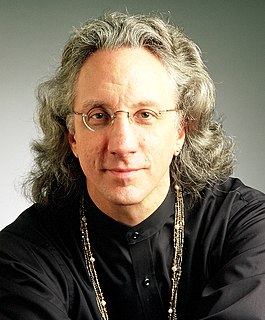A Quote by Paul Johnson
Is there any possibility of giving international air travel, which we all need and use and hate, a touch of glamour, or even of reliable, soulless efficiency? I suspect future historians will puzzle over our failure. But by then, of course, we shall be in the age of mass space travel, with its fresh and unimaginable crop of horrors.
Related Quotes
The only thing to be said for air travel is speed. It makes possible travel on a scale unimaginable before our present age. Between the ages of 20 and four-score I visited every country in Europe, all save two in Latin America, ditto in Africa, and most of Asia, not counting eight trips to Australia and 60 to the United States - all by air.
We're not going to waste our valuable space or your precious energy by giving equal time to stories of tragedy, failure, and tumult. They get far more that their fair share of attention everywhere else. Future historians might even conclude that our age suffered from a collective obsessive-compulsive disorder: the pathological need to repetitively seek out reasons for how bad life is.
I believe that space travel will one day become as common as airline travel is today. I'm convinced, however, that the true future of space travel does not lie with government agencies -- NASA is still obsessed with the idea that the primary purpose of the space program is science -- but real progress will come from private companies competing to provide the ultimate adventure ride, and NASA will receive the trickle-down benefits.
Today, we know that time travel need not be confined to myths, science fiction, Hollywood movies, or even speculation by theoretical physicists. Time travel is possible. For example, an object traveling at high speeds ages more slowly than a stationary object. This means that if you were to travel into outer space and return, moving close to light speed, you could travel thousands of years into the Earth's future.
As you begin to create more destinations, that will naturally create a stronger economic pipeline for space. And just as we have been the leader of commercial air travel for the first century, as we look to the second century of aviation, I would expect Boeing to be the leader in both air and space travel.
As for freedom, it will soon cease to exist in any shape or form. Living will depend upon absolute obedience to a strict set of arrangements, which it will no longer be possible to transgress. The air traveler is not free. In the future, life's passengers will be even less so: they will travel through their lives fastened to their (corporate) seats.
Trillions of years into the future, when all stars are gone...all parts of the cosmos will cool to the same temperature as the ever-cooling background. At that time, space travel will no longer provide refuge because even Hell will have frozen over. We may then declare that the universe has died-not with a bang, but with a whimper.
All we have to believe with is our senses, the tools we use to perceive the world: our sight, our touch, our memory. If they lie to us, then nothing can be trusted. And even if we do not believe, then still we cannot travel in any other way than the road our senses show us; and we must walk that road to the end.
Space travel is a dream for many men and women. I think my trip will be perceived differently by different genders because for women, a lot of time, not only space travel, it's not accessible to everyone, but is even less accessible to women, there are a lot more barriers for them especially if they live in countries where things like space travel, engineering, any science and technology-related field would be considered a more male-dominated field. And so I want to show them that there is nothing preventing woman, or making them less qualified to be involved in any of these fields.
But space travel can't ease the pressure on a planet grown too crowded not even with today's ships and probably not with any future ships-because stupid people won't leave the slopes of their home volcano even when it starts to smoke and rumble. What space travel does do is drain off the best brains: those smart enough to see a catastrophe before it happens, and with the guts to pay the price-abandon home, wealth, friends, relatives, everything-and go. That's a tiny fraction of one percent. But that's enough.
Do we need to make a special effort to enjoy the beauty of the blue sky? Do we have to practice to be able to enjoy it? No, we just enjoy it. Each second, each minute of our lives can be like this. Wherever we are, any time, we have the capacity to enjoy the sunshine, the presence of each other, even the sensation of our breathing. We don't need to go to China to enjoy the blue sky. We don't have to travel into the future to enjoy our breathing. We can be in touch with these things right now.
































